Co-Coordinators Editorial

Greetings MenCare partners and colleagues. I am delighted to be engaging with you again in 2023 and I extend a heartfelt warm welcome to our new partners who joined us in recent months. As I reflect on this first quarter of our newsletter, I would like to appreciate all of you for the amazing work that you continue to do in your various countries to promote the global fatherhood campaign.
The start of this year has seen us promoting the MenCare 50/50 Commitment which we extend all of you to become a part of. More information regarding how you can be part of this milestone is contained in this newsletter. I am also looking forward to engaging with you all at this year’s Women Deliver conference scheduled for July 2023 in Kigali, Rwanda. This is where we aim to launch the State of the World’s Fathers report as well as co-lead a pre-conference event on care. Those of you who will be in Kigali, we hope to meet you there and hope you will share with us the amazing work that you are doing in your different countries.
– Mpho Mabhena, MenCare Global Co-Coordinator; Regional Programmes and Network Unit Coordinator, Sonke Gender Justice
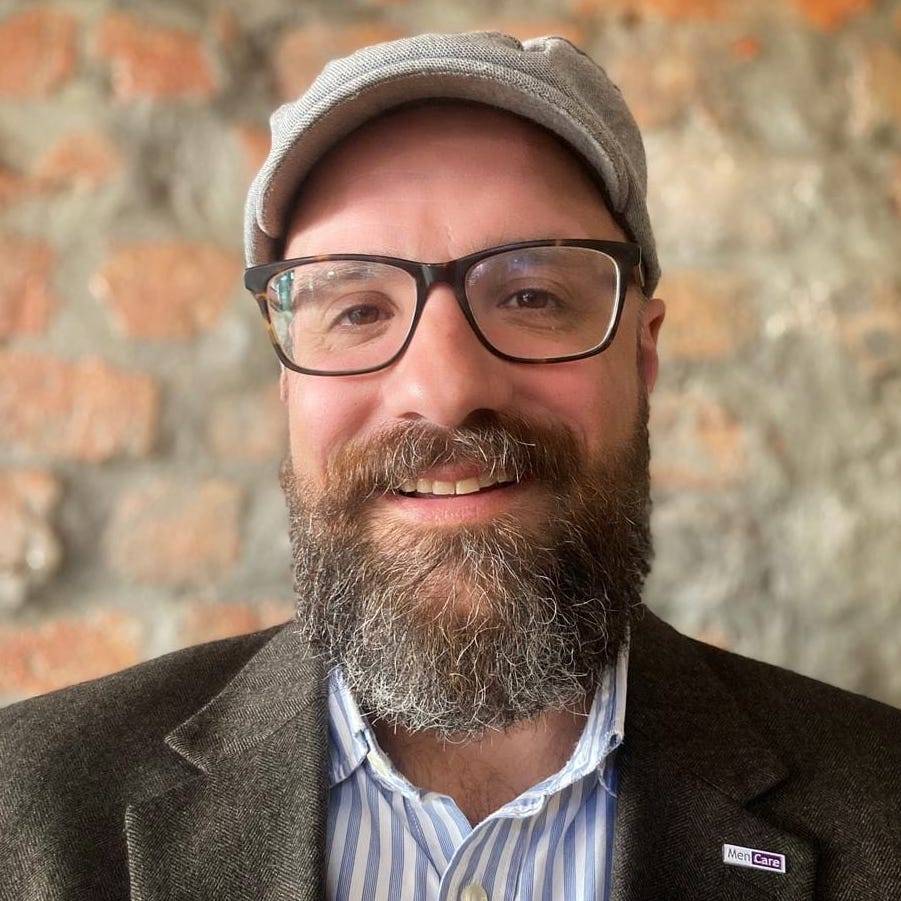
Dear Friends
Earlier this week I had a conversation with Michal Knapik, the diversity, equality and inclusion manager at mBank, one of the major mobile banks in Poland. Michal and I were talking about the MenCare 50/50 Commitment for Employers. As a MenCare Coordination team we’ve been hard at work with the MenCare Partners’ Council and national MenCare Partners to identify commitment makers, and build up the system to manage the commitment making process for individuals, employers, and government departments.
Our MenCare Partner in Poland – Share the Care Foundation had introduced me to Michal (and several other companies in Poland too!). In the context of paternity leave in Poland, Michal mentioned that he had noticed that ‘female friends are returning sooner to work.’ As a side note, I was struck by the fact that Michal referred to colleagues as friends. This spoke volumes about the workplace culture at mBank. We spend so much time with colleagues, how much better if they become friends!
And I was also impressed with the fact that there seems to be a response by the Polish government to low uptake of leave by fathers, by adapting the leave structure to encourage more fathers to take parental leave (the basket of non-transferable leave for fathers will soon expand to nine weeks, in addition to the existing leave structure). Michal also mentioned that Poland’s parental leave structure was influenced significantly by the 2019 EU directive on work-life balance.
The conversation felt to me like a glimpse into the kind of synergies MenCare is working towards: a healthy workplace culture, matched with a supportive policy environment, influenced by regional advocacy, and the public and private sector collaborating to increase men’s engagement in care.
The news in this newsletter tells more stories like this from Mexico, Peru, Benin, Bangladesh, and Sweden about various initiatives that are doing the work at national level.
When we publish the next newsletter in July, we will focus on the launch of the 2023 State of the World’s Fathers report, and the accompanying announcement of the first cohort of MenCare 50/50 Commitment makers at Women Deliver conference in Kigali. We hope to see many of you at Women Deliver, and to hear about your fantastic work all around the world.
– Wessel van den Berg, MenCare Global Co-Coordinator; MenCare Officer at Equimundo
MenCare 50/50 Commitment for Employers
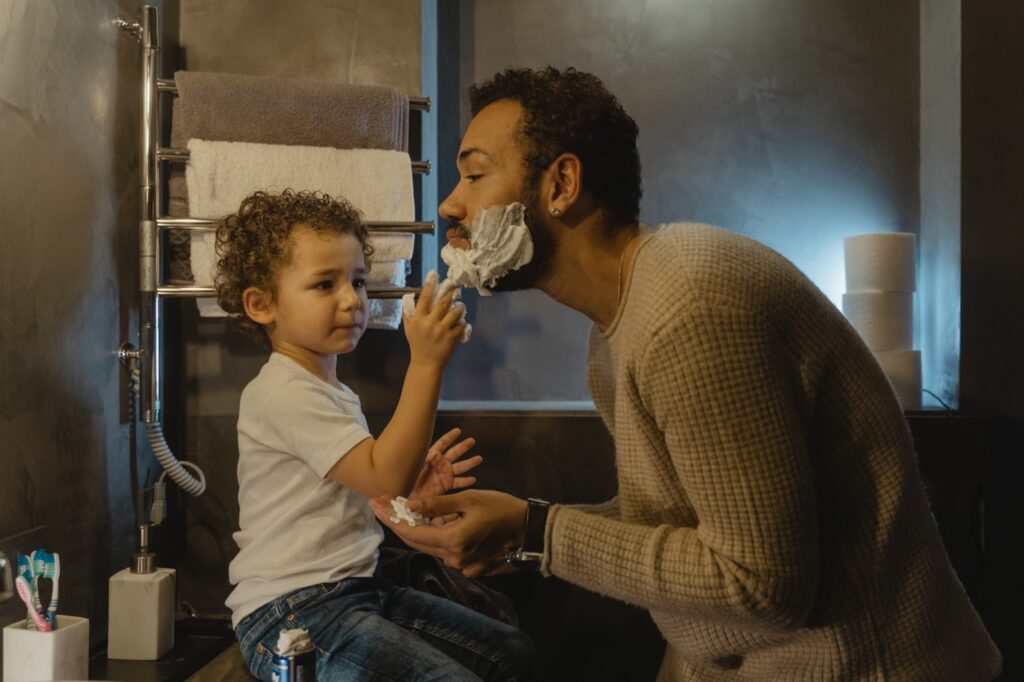
MenCare 50/50 Commitment applications are now open!
We are accepting Expressions of Interest from businesses to be included in the 2023 cohort of the MenCare 50/50 Commitment for Employers.
To sign the Commitment, employers must have tangible plans or show progress on two or more of the following:
- Working toward the establishment of equal, paid, non-transferable parental leave for all parents employed by the company;
- Implementing family-friendly workplace policies such as care days, remote working, flexitime, child-care or breastfeeding facilities;
- Implementing evidence based educational programmes for men on workplace gender equality.
- Promoting care equality with internal company public relations and marketing channels;
- Tracking indicators on care equality in company surveys and reports. (For example, tracking the ratio of men compared to women who take parental leave.)
The research is clear: Inclusive, supportive workplaces result in increased employee satisfaction, productivity, and sustainable growth. Strategies like the MenCare 50/50 Commitment for Employers resonate with boards, constituents, investors, and customers, and can increase your organization’s impact.
Partners’ News
Mexico
MenCare 50/50 Commitment news from Mexico
Written by Hugo Rocha
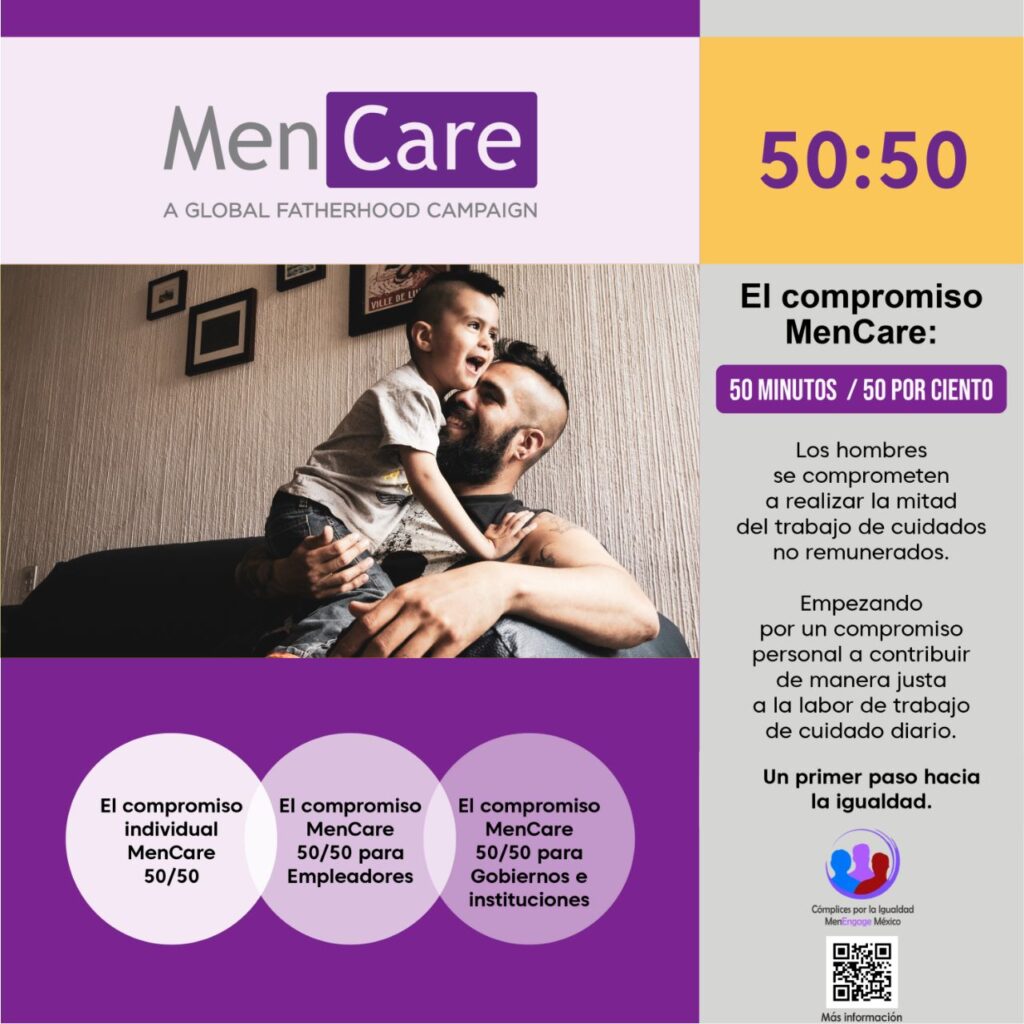
As Cómplices por la Igualdad México, we are very happy and excited to participate as partners in MenCare’s 50/50 Commitment processes. We want to highlight the progress in contacts with the National Institute for Women of Mexico (InMujeres), with whose director (Nadine Gasman) we have had the opportunity to meet. She has been very receptive to the 50/50 commitment campaign, and she joined the launch of the campaign in Mexico at the end of March. In the same way, the institute is collaborating in the construction process of the State of Paternity in Mexico report, with valuable contributions from their Planning and Evaluation team.
In addition, we had the opportunity on March 8 to attend the invitation of the Eastman Chemical company to offer a conference on comprehensive parenting and the MenCare 50/50 Commitment to the company facilities in Brazil and Mexico. As a result of this conference, the company’s human resources director promised to meet the request made by the attendees to extend the paternity leave in the short term, and also offered to publish in her business newsletter, the proposals for the MenCare 50/50 Commitments. In other activities, we were present at the Global Assembly of the Global Alliance for Care, reporting on the 50/50 Commitment, and we were also invited to disseminate our entire proposal on its platform.
Benin
Batonga Foundation hosts an International Women’s Day event in Benin, with a focus on engaging men and boys
Written by Wenceslas Jokpe
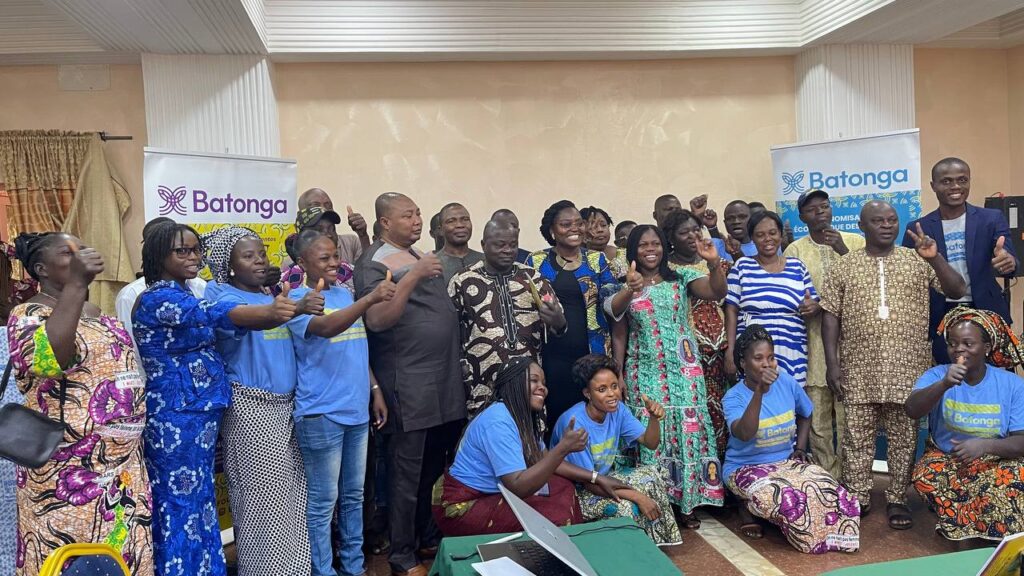
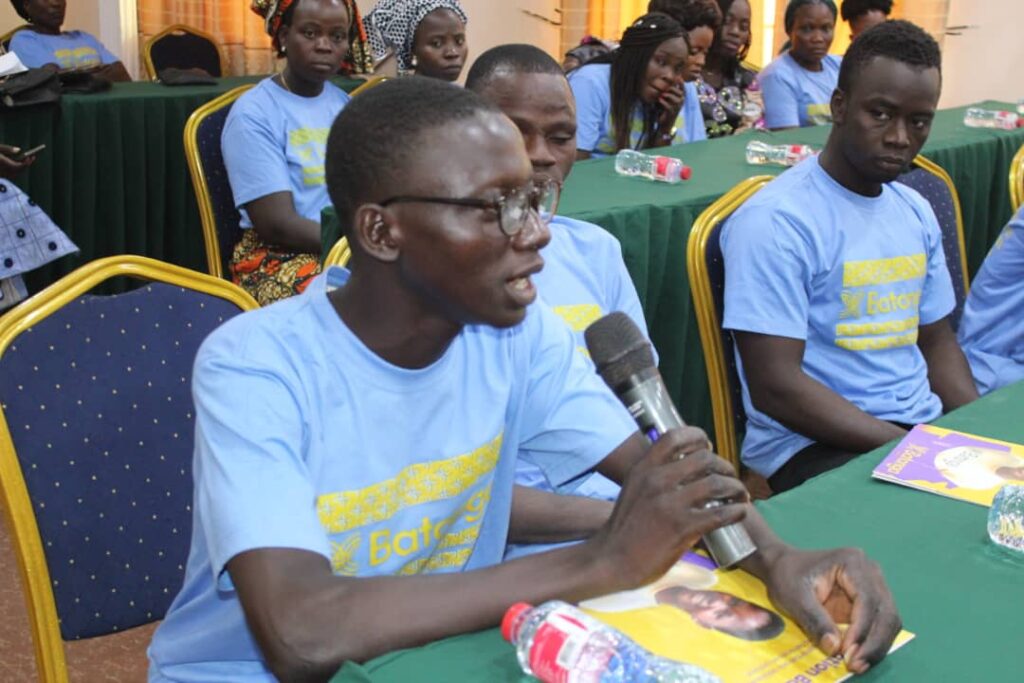
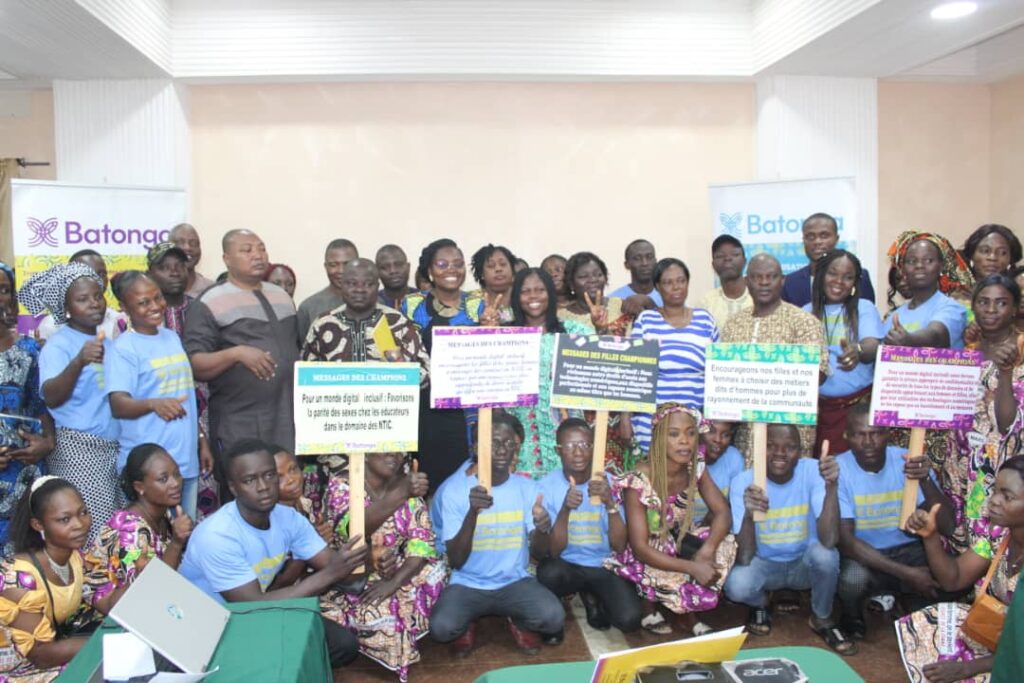
Editor’s note: Batonga Foundation is one of our new partners at MenCare, and we are excited to hear about the great work Batonga is doing!
The male champions of the Batonga Foundation were in the spotlight during the celebration of International Women’s Day on March 09, 2023 in the commune of Bohicon in Benin. Placed under the theme: “For an inclusive digital world: innovation and technologies for gender equality: male champions as allies for better equality and inclusion,” this day allowed the champions to convey their advocacy messages to the various authorities present such as the representative of the prefect of the department, the representative of the mayor of Bohicon, departmental directorates, community leaders, school principals and other partners. Positive masculinity was at the heart of the discussions with the champions taking the floor to give advice and share their experiences from surrounding communities.
These champions came from three local districts of Benin: Atacora in the north of Benin, and Collines and Zou in the center of Benin. They explained the objectives of their commitments and the actions they have taken.
For Denis (29 yrs from Bohicon), in order to have an inclusive digital world “…we must ensure the appropriate level of privacy and security of all types of data and devices belonging to women and girls, so that their use of digital technologies does not expose them to harassment and threat.”
Joel (25 yrs, from Savalou, center of Benin) said that men need to “encourage girls and young women to consider careers in Information and Communication Technologies, in science through a deeper understanding of the various aspects that a career in ICT offers.”
Vincent de Paul (26 yrs, from Kotopounga, North of Benin) sent a call toward men to achieve equality: “I call on all men to help us develop the hidden potential of our women, to help them in all their activities because an empowered woman creates a happy home, we must help girls and women to be independent; we are men because a woman gave birth to us.”
Before the Champions spoke, Batonga Foundation Presented the Men and Boys Engagement Initiative to the participants. The representative of the mayor commented that it is a great initiative, which will allow parents to avoid discriminatory education practices like prioritizing boys for school activities and entertainment and imposing the chores and the household tasks on girls. For him, there should be no distinction between children whatever the household chores, and with the work of the champions of the Batonga Foundation, things will change positively for the commune, because “we cannot have a sustainable development with 51% of the population struggling to have the same privilege as their peers”. He strongly promised the support of the mayor’s office for the activities of the champions in his commune, to be a good example for the whole country of Benin.
Bangladesh
Fathers’ Café: Fathers promoting gender transformative ECD in Bangladesh
A Plan International Bangladesh Project
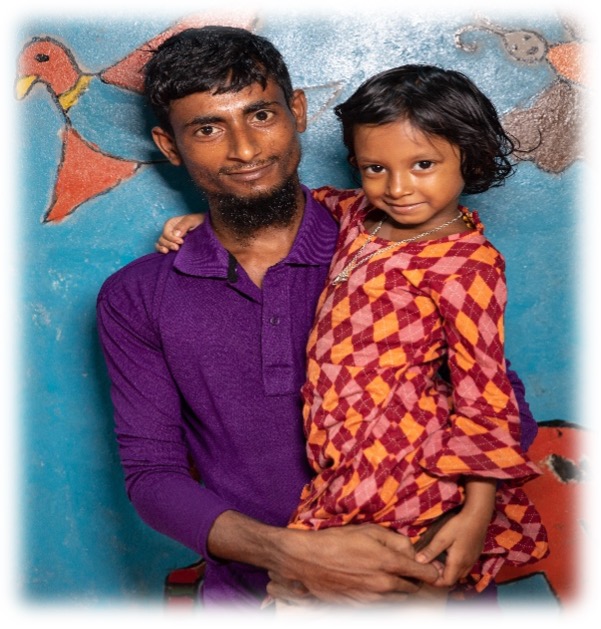
Plan International Bangladesh has been promoting gender transformative early childhood development in Bangladesh through its work and interventions. Fathers Café is a community-based volunteer team of fathers of children aged 0-8 formed with 20-25 interested parents in the community. The project aims to break discriminatory gender norms and ensure support for early-aged children’s holistic development. This project has created a play zone for fathers to learn how to play with their children in a gender-responsive manner and practice in their family environment.
The main objectives of the project are to ensure equal opportunities for growth and development of boys and girls, to ensure equal participation of fathers or male members of the families in child rearing and caring, and to ensure a non-discriminatory social system. Each member of the “Fathers Café” receives 1-hour long sessions each month where they learn about their roles as a parent to support their early-aged children’s holistic development. They also share the learning with other fathers in their community. The project identifies and encourages the fathers who brought the most significant changes in their routine and increased their interaction with their children. They are also encouraged to share the same messages, learnings, and practices with other fathers. Since fathers are mostly involved in work outside the home, it became very tough to ensure everyone’s presence in the father café sessions all the time. So, sometimes it might be required to conduct the sessions in the evening.
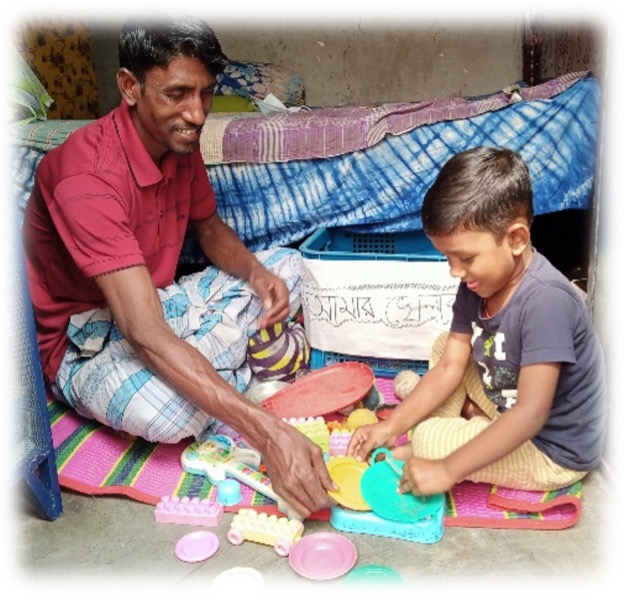
Almost 100% of Father Café members and many other fathers are now doing household chores alone. One father shared that “Supporting in household chores increase mutual respect and we have been able to present some exemplary behavior to our children.”
Sweden
Status – M study visit to MÄN Sweden sparks collaboration
Written by Lena Wallquist
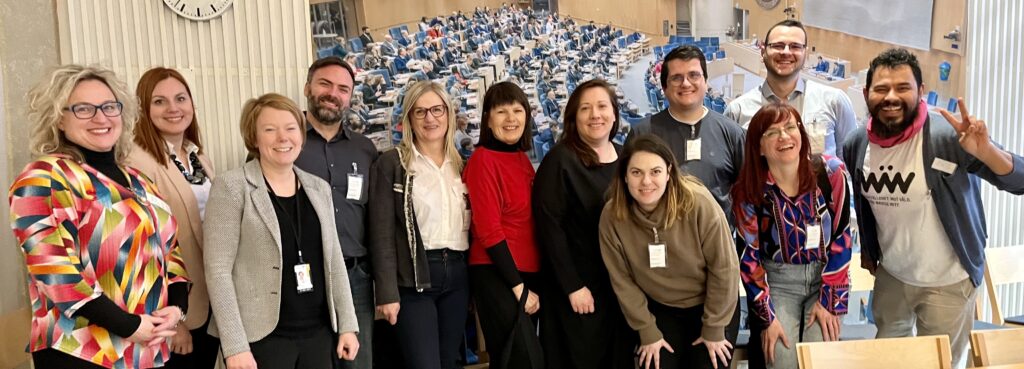
When the Croatian organization Status M contacted MÄN in Sweden about a year ago to discuss possibilities for an exchange, both organizations saw an opportunity for an interesting collaboration. MÄN has organized many trainings and international study visits for actors from different parts of the world to share lessons learned and experiences from the Swedish context. This time, with two like minded CSOs – both MenCare partners, active members of the MenEngage Alliance and with similar aims and activities – there was an apparent potential for taking the collaboration one step further.
In mid-March, a delegation of ten people traveled from Croatia to Sweden to take part in a five-day study and learning visit with a focus on gender equal parenting. The group consisted of staff and volunteers from Status M together with strategic partners from Family Centers and civil society.
“The purpose of the visit was for us to learn more about MÄN’s work on equal parenting and caregiving and see if and how we can apply some of it in our work in Croatia. Status M is a lone voice in our country when it comes to recognizing the importance of men as allies in the fight for gender justice. With input from international exchanges like this, we can become the spark that sets the entire system in motion,”, Anamarija Soco, President of Status M, says.
The visit, realized through an EU -grant, consisted of workshops, interactive sessions and the chance to try out different methods. The programme also included meetings with representatives from the Swedish Parliament, the Swedish Social Insurance Agency, a private company with explicit ambitions to support work-life balance, a maternity health clinic and a preschool. These meetings gave an opportunity to see the gender equality perspective integrated into various policy areas such as healthcare, family care and workplace equality. They also made evident some of the enabling factors that have produced changes in paternity leave legislation and involvement of fathers in Sweden.
The last two days of the programme provided the opportunity for a joint training of Croatian and Swedish father group facilitators-to-be. Having participants from two different national contexts in the same training opened up for interesting exchange and reflections on similarities and differences. Shared challenges were identified, ranging from recruitment and retention strategies to the conservative backlash in Europe and how it affects civil society and the prospects for progressive work for gender justice. Jens Karberg, Programme Manager for Equal Parenthood at MÄN, says they are now making plans for the continued collaboration between the organizations with a focus on method development, as the training was a first step in developing a new handbook for father group facilitators in Croatia. He underlines the mutual benefit of this kind of exchange: “Working together with a partner to develop material for a new context also provides valuable opportunities for us to reflect on the material we use and to further develop our own methods. Also, the challenges we face are similar in many countries. Together, we can be smarter, the work will go faster – and it will indeed be more fun!”
Welcome to MenCare!
FH Peru has 40 years of experience working for the development of Peru developing humanitarian assistance projects on issues such as food security, prevention of gender violence, health, education, youth, and COVID-19.
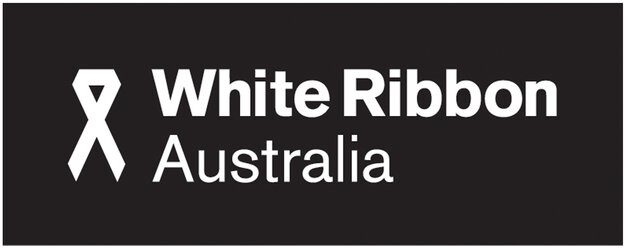
White Ribbon Australia is a non-profit organization dedicated to ending men’s violence against women. It works to promote gender equality and prevent violence through education and advocacy programs that engage men and boys as allies.
Get Involved
There are many different ways for you to join MenCare in making a difference around the world. Are you part of an organization that wants to become an official MenCare partner? A government who wants to commit to accelerating men’s uptake of 50 percent of the unpaid care work? A business that wants to learn how to offer family-friendly policies and promote gender equality in the workplace? Or, are you a dad or caregiver who wants more tips on involved fatherhood?
Learn more about how you can join the movement to support involved, caring fatherhood.
